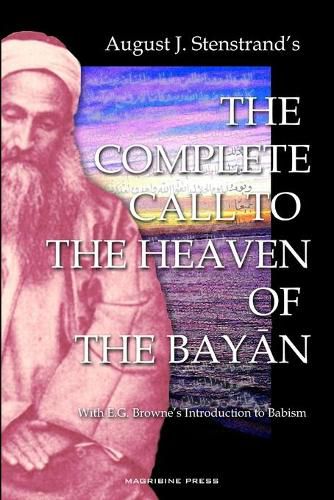Readings Newsletter
Become a Readings Member to make your shopping experience even easier.
Sign in or sign up for free!
You’re not far away from qualifying for FREE standard shipping within Australia
You’ve qualified for FREE standard shipping within Australia
The cart is loading…






This title is printed to order. This book may have been self-published. If so, we cannot guarantee the quality of the content. In the main most books will have gone through the editing process however some may not. We therefore suggest that you be aware of this before ordering this book. If in doubt check either the author or publisher’s details as we are unable to accept any returns unless they are faulty. Please contact us if you have any questions.
The Complete Call to the Heaven of the Bayan is a collection of the writings of August Stenstrand, one of the West's first followers of Subh-i Azal, the rightful successor to one the 19th centuries most profound religious figures: Sayyid Ali Muhammad the Bab. Stenstrand sets about to prove the legitimacy of Subh-i Azal's position and establish the precariousness of BahaUllah's? claims to the contrary.
$9.00 standard shipping within Australia
FREE standard shipping within Australia for orders over $100.00
Express & International shipping calculated at checkout
This title is printed to order. This book may have been self-published. If so, we cannot guarantee the quality of the content. In the main most books will have gone through the editing process however some may not. We therefore suggest that you be aware of this before ordering this book. If in doubt check either the author or publisher’s details as we are unable to accept any returns unless they are faulty. Please contact us if you have any questions.
The Complete Call to the Heaven of the Bayan is a collection of the writings of August Stenstrand, one of the West's first followers of Subh-i Azal, the rightful successor to one the 19th centuries most profound religious figures: Sayyid Ali Muhammad the Bab. Stenstrand sets about to prove the legitimacy of Subh-i Azal's position and establish the precariousness of BahaUllah's? claims to the contrary.